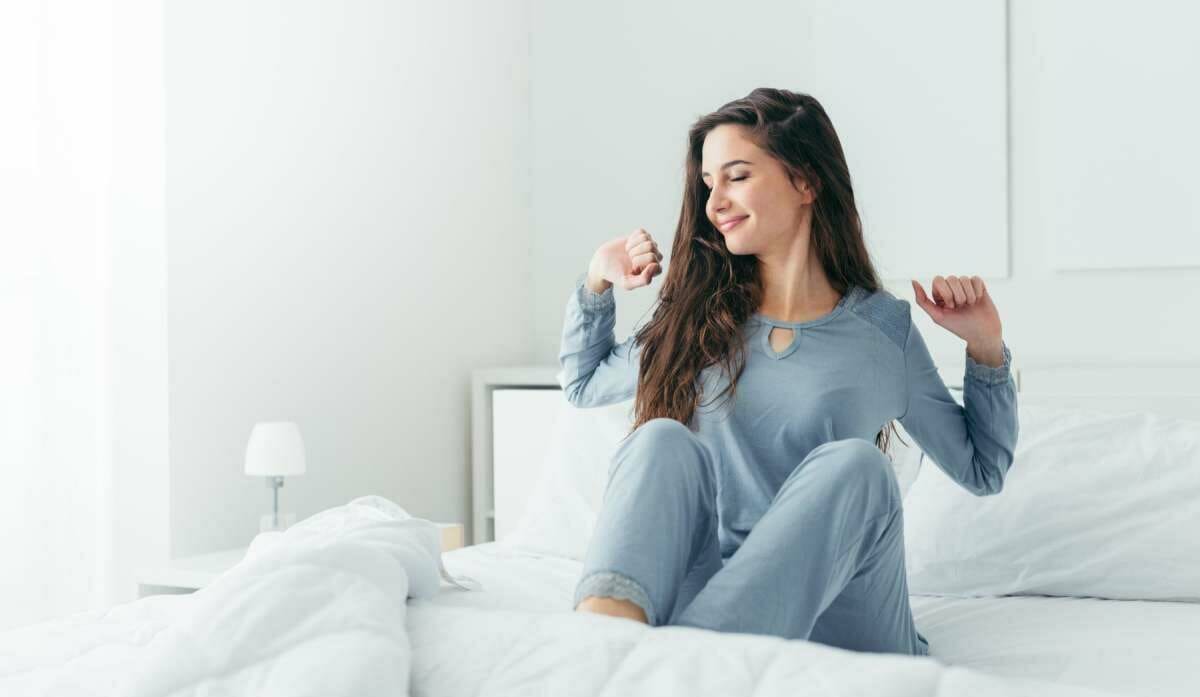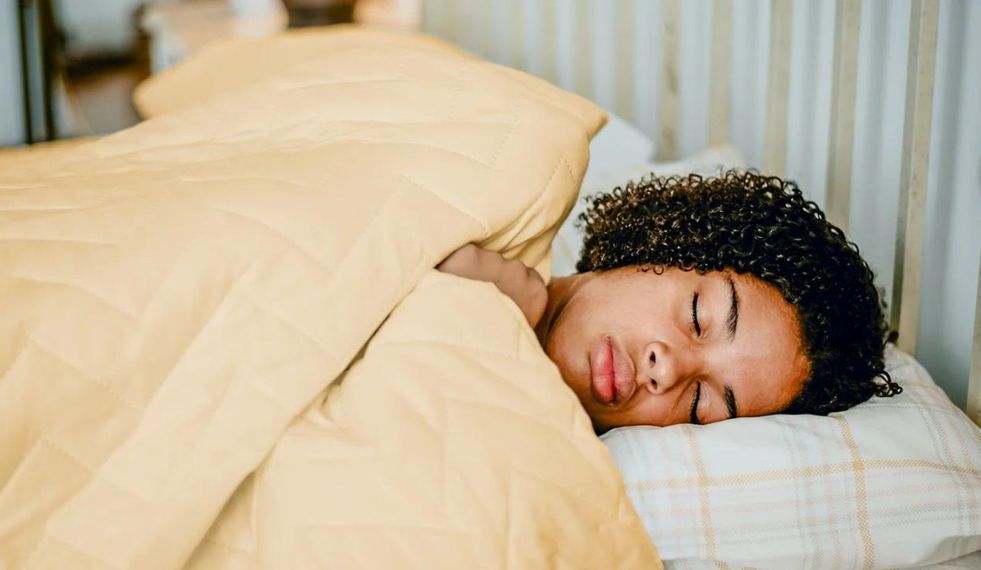
A poor sleep routine disturbs a person not just mentally but physically and emotionally too. Nowadays, sleep quality issues have emerged as a crucial health challenge, and their strong connection to mental health highlights the need for solutions. Sleep is now considered a fundamental aspect of a person’s health and is no longer seen as a luxury. Instead, it’s recognized as a vital necessity for overall health and optimal functioning.
Sleep quality issues such as insomnia can affect your overall well-being and can contribute to a range of health issues. These issues include anxiety, depression, mood swings, impaired cognitive function, and a weakened immune system. In this post, we’re going to dive deep into the science behind sleep quality issues with a perfect solution to improve your sleep quality that’s “bobi“.
To fully understand the effects of conscious breathing on sleep enhancement, it is essential to delve into the science of sleep. Sleep architecture encompasses two main cycles: non-REM sleep and REM sleep. Non-REM sleep is characterized by four stages, ranging from light sleep to deep sleep, during which the body’s vital restorative processes take place.
On the other hand, REM sleep involves rapid eye movement and brain wave patterns similar to those experienced during waking hours. Both sleep patterns have their place, but non-REM sleep holds particular importance for physical and cognitive health.
Regarding sleep-related challenges like insomnia which significantly reduces the amount of non-REM sleep, the sympathetic nervous system (SNS) plays a significant role. As one of the two main divisions of the autonomic nervous system (ANS), the SNS is responsible for regulating involuntary bodily functions, preparing the body for “fight or flight” responses to stress or threats.
During the day, SNS activity assists in maintaining wakefulness and alertness, supporting daily activities. However, as the transition from wakefulness to sleep occurs, the SNS activity typically decreases, yielding dominance to the parasympathetic nervous system (PNS), which fosters relaxation and promotes the onset of sleep.

Some research suggests a correlation between sleep quality issues and activity in the sympathetic nervous system. This hyperactivity of the SNS can be associated with difficulties falling asleep and provides a possible link to insomnia.
Over one-third of people in the United States report sleeping less than seven hours each night, and nearly half report having trouble falling or staying asleep.
A study conducted to assess the sleep patterns of insomniacs and normal sleepers revealed a significant difference in autonomic nervous system (ANS) activity. While normal sleepers exhibited the expected progressive autonomic drop during sleep, insomniacs displayed constant sympathetic hyperactivation. These findings suggest that insomniacs experience heightened SNS activity throughout their sleep. This is unlike normal sleepers who have normal autonomic nervous system behavior.
In another research conducted at the University of Pennsylvania, an imbalance in the autonomic nervous system was identified as a major factor in insomnia and indicated that it plays more of a role than circadian rhythm disorders. The research showed that insomnia is associated with the hyperarousal of the central nervous system. In short, unaddressed stress and anxiety lead to significant sleep disruption.
Research continues to unveil the interconnections between sleep quality and other physiological and psychological processes, with an increased focus on holistic approaches to sleep enhancement. Growing concerns about the long-term use of melatonin, by way of example, have underscored the importance of finding alternate solutions to sleep difficulties. Conscious breathing is one approach that is gaining popularity. Especially the practice of slow breathing, which shows promising benefits for improving sleep quality.
In light of this scientific research, “bobi” emerges as a revolutionary wellness product, harnessing the power of conscious breathing to facilitate better sleep quality. bobi stimulates the production of alpha brain waves with its unique mechanism of squeezing the left hand that promotes rhythmic slow breathing. These alpha brain waves are associated with relaxation and enhanced sleep readiness.
They discovered that the optimum amount of air we should take in at rest per minute is 5.5 liters. The optimum breathing rate is about 5.5 breaths per minute. That’s 5.5-second inhales and 5.5-second exhales. This is the perfect breath. _ James Nestor, Breath
The ideal breathing technique for enhancing sleep quality revolves around achieving approximately 5 to 6 breaths per minute, characterized by inhaling and exhaling for about 5.5 seconds each. bobi can help you develop and maintain this rhythmic breathing pattern, guiding you toward a state of calm and relaxation before bedtime. bobi offers a transformative tool to enhance overall sleep quality and well-being with the motto ‘breathe easy‘.
The short answer to the question ‘how to improve sleep quality’ is bobi. A valuable calming device to help individuals of all ages to manage stress and anxiety. At the heart of this beauty is to empower users to ground themselves effectively and foster a positive emotional response during times of tension.
In short, your better breathing patterns can lead you to improved sleep quality. Because sleep quality is a pivotal aspect of our overall health, with its deep ties to mental well-being. Disturbances like insomnia can lead to a myriad of health issues, from mood swings to chronic diseases. The science of sleep reveals the importance of both non-REM and REM sleep, with the sympathetic nervous system playing a crucial role in sleep-related challenges. bobi’s unique design guides users to achieve the ideal breathing rhythm, providing for improved sleep and overall well-being. Embrace the transformative potential of optimal breathing technique and bobi for a rejuvenated life. Purchase from our shop!
Conscious breathing, especially slow breathing, can improve the quality of sleep by helping to calm the sympathetic nervous system. It can assist in decreasing stress and anxiety, which are common contributors to sleep disruptions.
The SNS is one of the two main divisions of the autonomic nervous system (ANS). It is responsible for the body’s “fight or flight” response to stress or threats and regulates involuntary bodily functions.
Hyperactivity of the SNS is often associated with difficulties in falling asleep, which can lead to insomnia. A balanced SNS is crucial for transitioning from wakefulness to sleep, allowing the body to relax.
4. What is “bobi” and how can it assist in better sleep?
bobi is your personal breathing coach that leverages the power of conscious breathing. By promoting rhythmic slow breathing through a unique mechanism, it stimulates alpha brain wave production. These alpha brain waves foster relaxation and enhance sleep readiness.
To use bobi you’ve to take it in your left hand and squeeze it. This continuous practice will help you in achieving rhythmic slow breathing eventually leading to calming the mind and preparing the body for sleep.
Stay updated on what's happening at bobi, and all things breathing, anxiety and mental wellness.